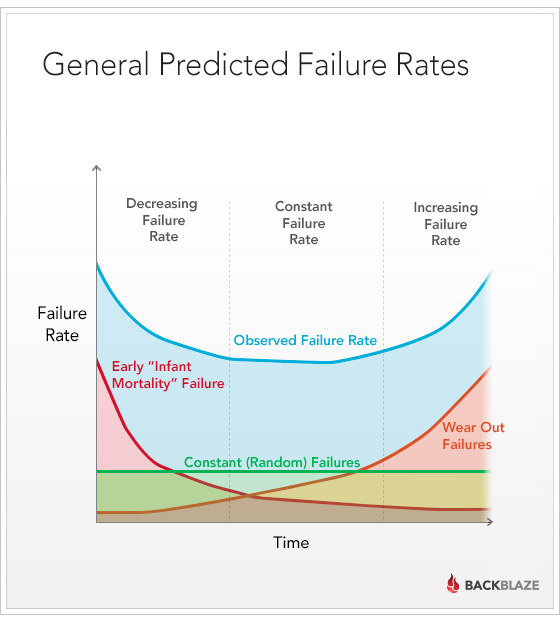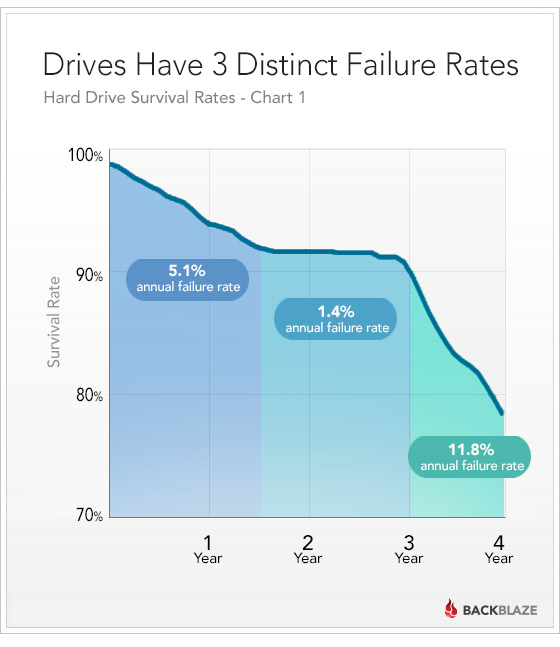- Dec 1, 1999
- 560
- 3
- 81
Out of curiosity, how long should a HDD like a Western Digital Black last?
In my system I currently have one 10 years old WD Black 640 GB and one 7 years old WD Black 750 GB.
Both have been used to install and run programs/OS when I first bought them but it changed for storage and accessing media files(pictures, movies and music) when I bought my first SSD almost 5 years ago. Both work fine, normal noise levels, pass any diagnostic tools I've used on them. I'm not worried about losing the data on them since I frequently do backups. The computers in which they've been used in were usually on for 12-18h/day every days for the last 7-10 years.
Here why I'm wondering how long I should expect them to work. I'll soon replace them with a single WD Black 2 or 4 TB drive and I'm wondering if I should keep using them, either by giving them away to family members for their own(very old) systems or perhaps as external drives for backups. I never really kept any HDD for this long before as I would always upgrade for something faster or bigger within a few years usually.
What's the conventional wisdom on this?
In my system I currently have one 10 years old WD Black 640 GB and one 7 years old WD Black 750 GB.
Both have been used to install and run programs/OS when I first bought them but it changed for storage and accessing media files(pictures, movies and music) when I bought my first SSD almost 5 years ago. Both work fine, normal noise levels, pass any diagnostic tools I've used on them. I'm not worried about losing the data on them since I frequently do backups. The computers in which they've been used in were usually on for 12-18h/day every days for the last 7-10 years.
Here why I'm wondering how long I should expect them to work. I'll soon replace them with a single WD Black 2 or 4 TB drive and I'm wondering if I should keep using them, either by giving them away to family members for their own(very old) systems or perhaps as external drives for backups. I never really kept any HDD for this long before as I would always upgrade for something faster or bigger within a few years usually.
What's the conventional wisdom on this?





